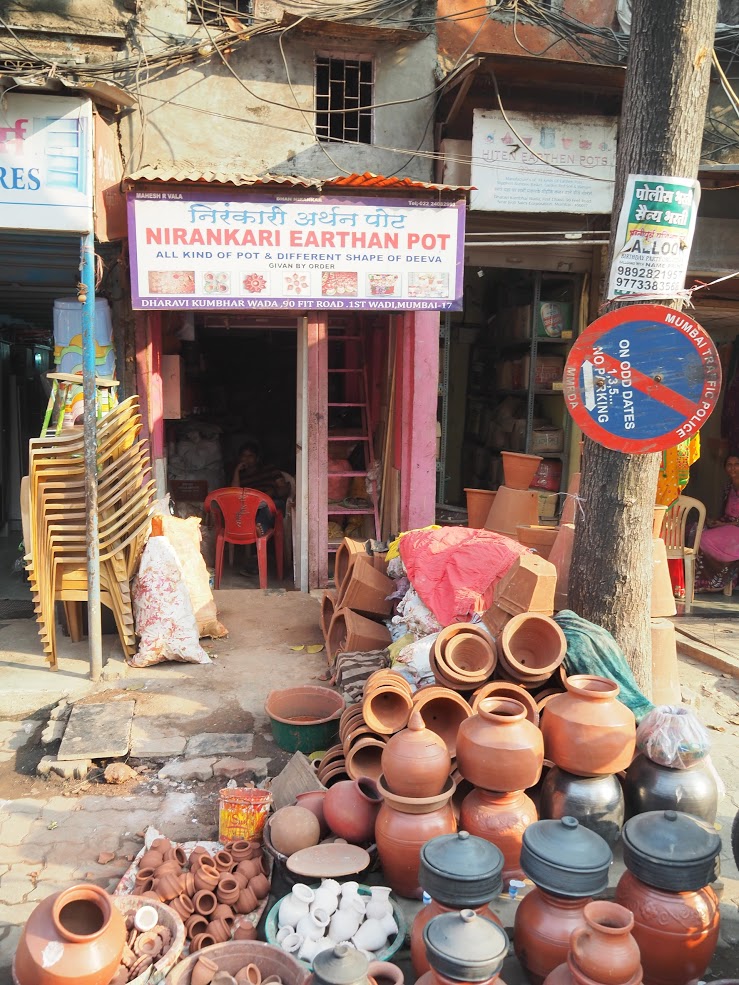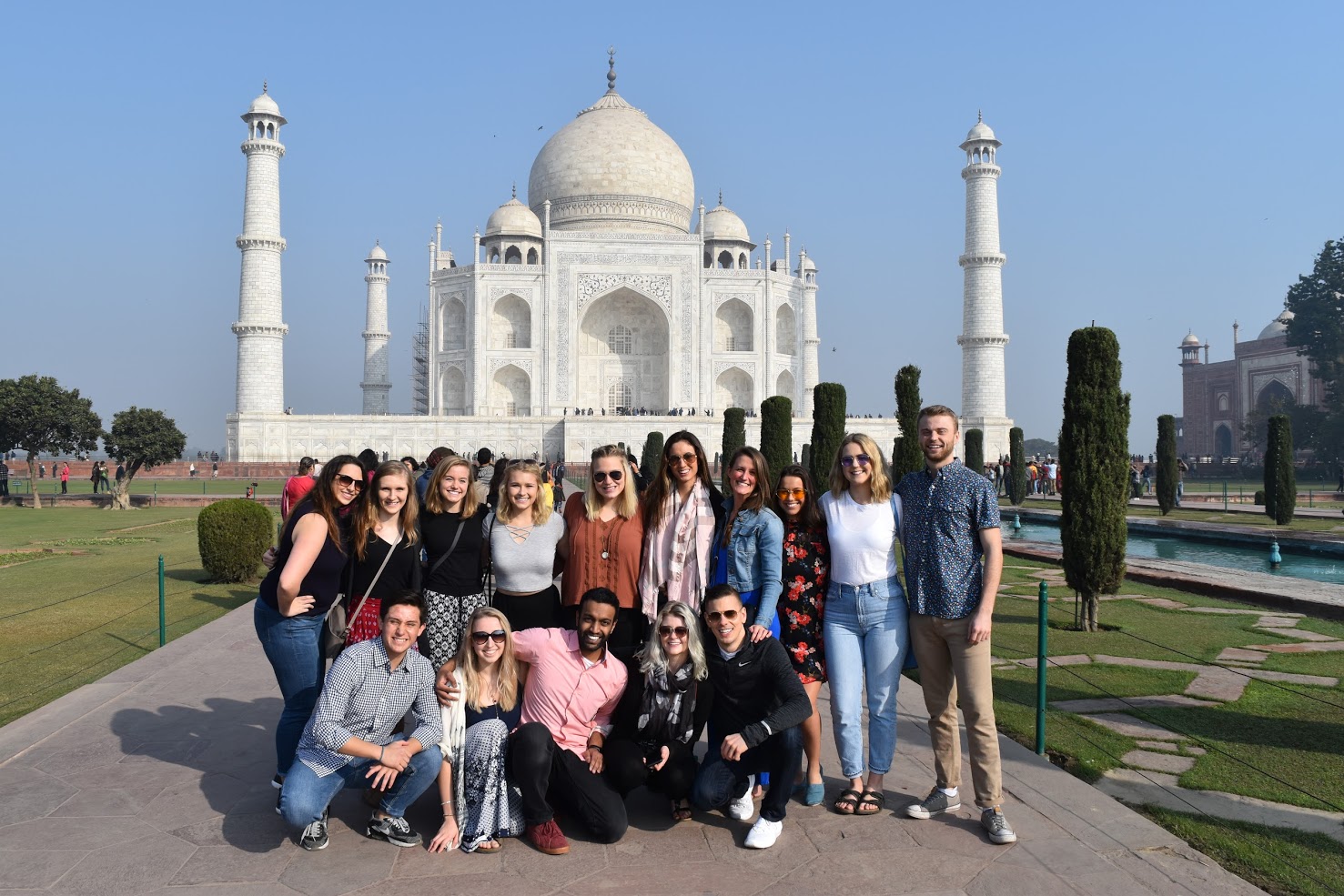With more than 1.3 billion people, India is second only to China as the most populated country in the world. With an array of ethnic groups, languages and religions represented, India also boasts one of the world’s largest economies, making it a prime learning ground for University of St. Thomas students.
Over J-Term, students in two Opus College of Business study abroad classes – Marketing in a Mega-market and Social Entrepreneurship in India – experienced firsthand the country’s vast social and economic diversity.
While each program had a distinct focus, both offered students a unique educational experience through cultural immersion halfway around the world.
Marketing in India
For 12 days, 17 MBA students split their time between New Delhi and Mumbai learning how marketing and business in India differ from the United States. By meeting with businesses across the two heavily populated cities, students experienced the conditions and complexities surrounding business in India. They also visited the Bombay Stock Exchange.
“It was so exciting to be in that market and in that space,” MBA candidate Rachel Daniel said. “We had the privilege of going to some pretty big companies and talking to executive teams. We learned about each company’s business model, how they reached certain demographics and how India is a great testing site because there are so many people, so many different cultures, languages and barriers. It would be a really exciting place for an American company to come test their products. The underlying message – whether it was at Nivea or a 3-D company we went to – was hope for India, and I thought that was cool.”

Over J-Term, more than a dozen St. Thomas students – both undergrad and grad – took part in the Schulze School of Entrepreneurship’s Social Entrepreneurship in India course in Mumbai where they learned firsthand about India’s social and environmental needs. (Photos provided)
In addition to talking with business people, students experienced Indian culture through group dinners, sightseeing excursions and city exploration during their free time. As part of the class, they kept journals and held daily discussions about their observations and experiences.
Daniel said her time in India was both exciting and humbling. She’s now eager to see more of the world.
“On the business side of things, it was so exciting and everything felt so fresh and new,” she recalled. “I really wanted to jump in and get my foot in the door. It gave me more of a global perspective and I’m definitely going to take that into my future career.
“It also gave me a different perspective, a different lens on how to look at life and issues,” continued Daniel, who noted the extreme poverty she witnessed. “The main thing was being able to look at the world through a different perspective and put myself in another person’s shoes.”
Associate Professor of Marketing Avinash Malshe said the class gives students a deeper-level understanding of what it takes to do business in global contexts. Learning on trips like this one, he added, is an asset for a student's future professional development. In India, they became familiar with the country’s complexities, gained an understanding of a global market and experienced personal growth.
“I would like them to feel a little bit uncomfortable,” Malshe said. “That allows you opportunities to grow. There’s tremendous personal growth happening as they go through this particular experience. India is a developing country – you see lack of infrastructure, poverty. …People walk away appreciating what they have a lot more before they came. That is very evident in the conversations you have toward the end. It’s not one of the objectives, but it ends up being one of the many outcomes of the trip.”
Social Entrepreneurship in India

Students in the Schulze School of Entrepreneurship’s Social Entrepreneurship in India course had a three-and-half week dive into living in the world's fourth largest city: They were based in Mumbai and learned firsthand about India’s social and environmental needs.
In conjunction with India’s S.P. Jain Institute of Management and Research, the 16 St. Thomas students – a combination of undergrads and grads – had an opportunity to work alongside social entrepreneurs and organizations tackling a variety of issues in some of Mumbai’s largest slums. Students were broken into groups and assigned to one of five organizations with missions that ran the gamut from providing underprivileged children educational opportunities to helping artists with disabilities sell their wares.
Bradley Casemore, a graduate student studying business analytics, worked on a project for Door Step School, an organization that turns school buses into mobile classrooms to help educate needy children. Casemore and his team worked on developing methodologies to make Door Step School’s processes more efficient and effective.
“We were able to help them document what their processes are, which allows them to standardize operations across the buses,” said Casemore, who is also a project management professional. “It allows them to look for places they can become more efficient. It decreases onboarding time as well, so when new employees are hired they have all those things documented.
“When we left the project, I felt really good,” he added. “I made contact with them two weeks out and I’ve seen they’ve taken what we showed them how to do and created a number of new process documents since we left. It wasn’t like we went there, showed them something and left. They’re actually using the knowledge we gave them to solve additional business challenges that they have. From a project perspective, I couldn’t be happier.”
Mo Fahnestock, PhD, who teaches Social Entrepreneurship at the Schulze School of Entrepreneurship and leads the Institute for Executive Director Leadership, said many of the students made significant contributions to the projects they worked on in Mumbai.
“Part of it’s a journey,” said Fahnestock, who noted students also had a chance to explore the city and take in the sights. “It’s a different way of looking at the world, understanding it and living in it. We’re going into places where most people would say are really tough. What’s fascinating is most of the people we are going to meet have a spirit of life in them that’s just beautiful. Even in some of the tougher slums and areas we were in, there was a spirit in people that was wonderful.”







